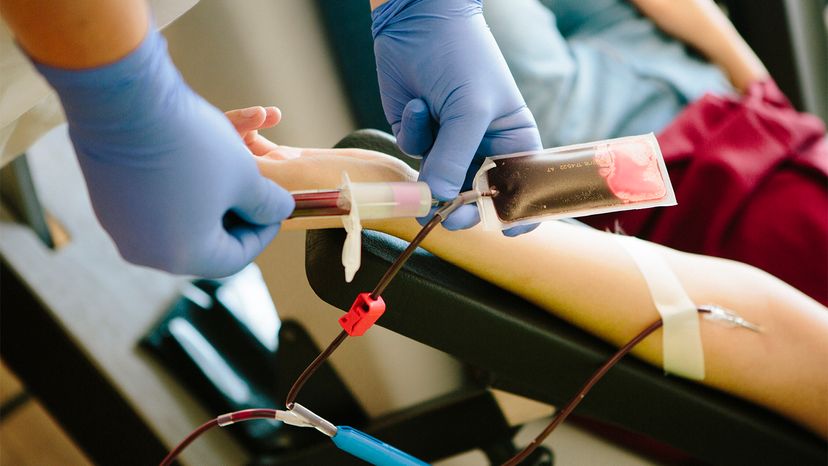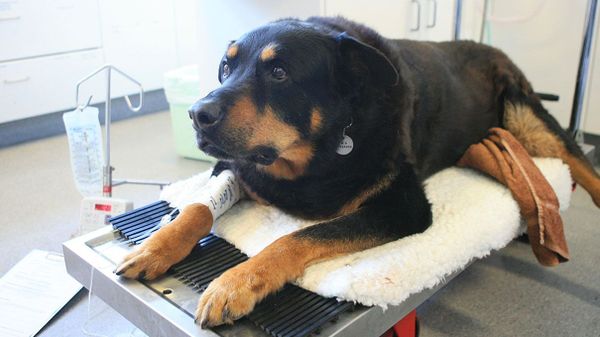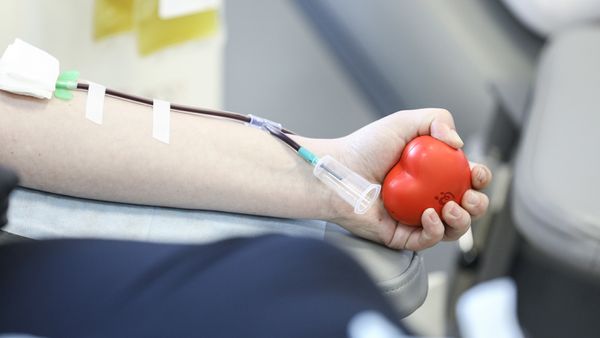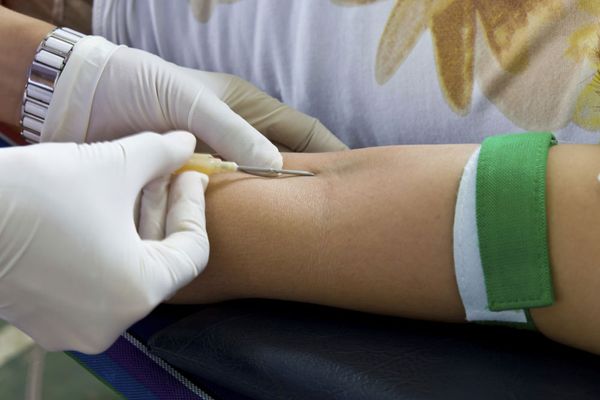"It's advisable for donors...to maintain their regular meal schedule. And if possible, to hydrate even more so than they normally would. Water is best in the last 24 to 48 hours prior to donation. It helps the blood to run a little bit smoother and will generally facilitate a better, faster donation," says Don Escalante, Public Relations Specialist for Lifestream Blood Bank, which is a nonprofit that operates blood donation centers in southern California. Juices and soda/caffeinated beverages will not keep you as hydrated as water will, says Escalante. He recommends drinking roughly the equivalent of 4-6 16 ounce (473 milliliter) bottles of water in the 24 hours prior to donating blood, though this is also solid advice for giving a blood sample during a routine hospital or laboratory visit.
Most donor centers or healthcare professionals in a hospital setting will not explicitly ask you beforehand if you've recently been drinking alcohol. But while it may not be illegal per se to donate or give blood while intoxicated, it is not medically advisable to drink alcohol before or after giving blood. Coffee is also best avoided before and after having blood drawn because it has a dehydrating effect, according to Elmasri.
Moreover, if you appear visibly intoxicated, some donation centers, such as the Australian Red Cross, will turn you away for being under the influence of alcohol. When donating blood, you should generally be healthy, which would generally not include being hungover from last night's happy hour.



